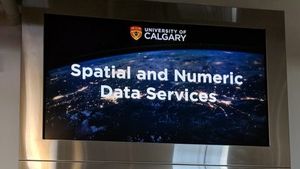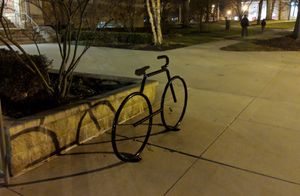John Sutherland writes about the decision of history faculty at Middlebury College to bar students from citing Wikipedia in their work.
As it happens, I think the Middlebury decision is wrong. They should, I think, have put together an introductory course on ‘scepticism’, illustrated by Wikipedia entries good and bad, containing advice on how to use, test, and sift the evidence they contain. It would be a handy way to teach the student how to double source, how to believe no proposition as fact until the case is overwhelmingly proven. In that context, the bad entries could be as useful as the good. And the means of distinguishing them is all-important. [Something wiki this way comes | comment | EducationGuardian.co.uk]
He moves on to some broader remarks:
The Wikipedia-Middlebury spat is a straw in the wind, a small cloud on the horizon signalling a storm to come. Very soon the Google Book Search Library Project, indexing the accumulated contents of five of the most capacious libraries in the English-speaking world, will be completed. A couple of years after that, if we believe Bill Gates as quoted in the Guardian in October 2005, Microsoft will launch its Palm Pilot-sized ‘tablet’, linking the student (for a fee) to every textbook in every subject that they could conceivably need.
These resources will revolutionise higher education. What is important is that, at this preliminary stage, those involved in teaching should work out protocols for using these resources, rather than being used by them as passive, bovine ‘consumers’. Wikipedia is a good place to start. [Something wiki this way comes | comment | EducationGuardian.co.uk]
I hope that scepticism is a core part of library educational activities!



